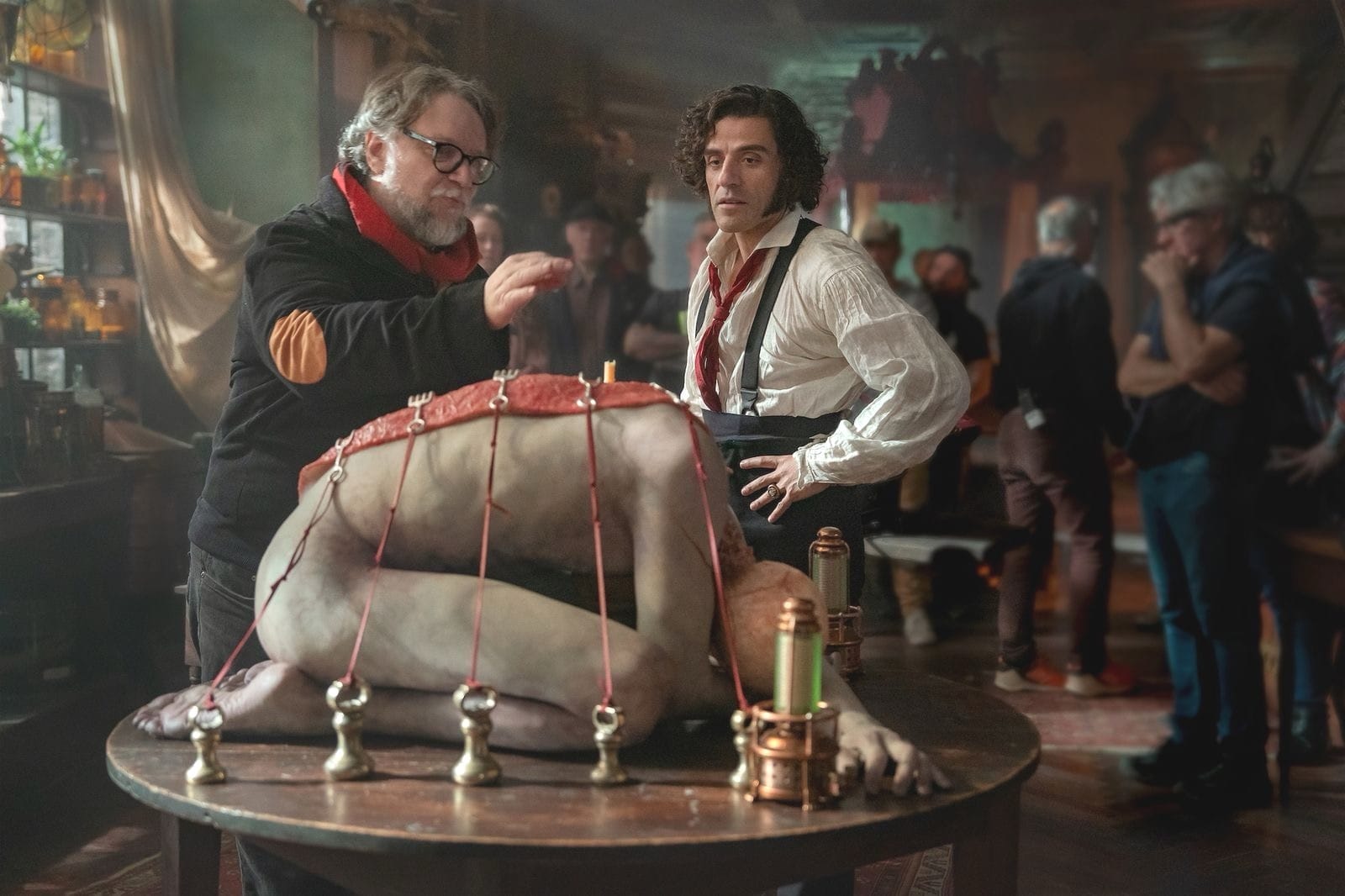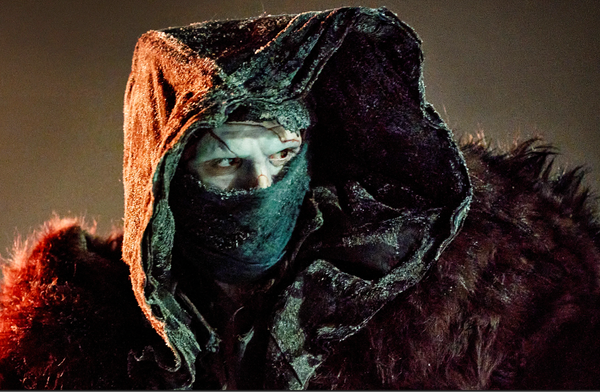★★★ (3 out of 4)
Every time I’ve spoken to Guillermo del Toro, the mad-talented, Oscar-winning Mexican auteur for “The Shape of Water,” he has always talked about creating his own “Frankenstein.” Now he’s done just that and I’m sure he has the scars to prove it. Fulfilling a dream can be hell on the dreamer and sometimes his audience.
Playing God isn’t just an obsession for Victor Frankenstein (Oscar Isaac), the good/bad doctor who wants to create new life out of dead body parts, it’s a workable description of a film director with the hubris and the budget to think he can improve on nature.
And so del Toro brings life to horror fantasy in ways miraculous and wise. He’s stitched together a remarkable Creature in Jacob Elordi, who conveys innocence, strength, sexuality and crushing sorrow in ways that Boris Karloff never investigated in the 1931 classic. Elordi is Oscar worthy.
It’s del Toro himself who falters in stitching together a coherent film over two hours and 29 minutes. James Whale’s original “Frankenstein” created a miracle of miracles in only 70 minutes of indelible cinema, while del Toro buries his passion in bloat.
Still, del Toro's “Frankenstein,” now in theaters (where it should be seen) on its way to Netflix Nov. 7, is far from a write-off. It brims over with beauty and terror, shot with a poet’s eye by Dan Lausten with costumes to die for by Kate Hawley and a thrilling orchestral score by the great Alexandre Desplat.

But an epic film can’t live on looks alone, even with sound to match. The script that del Toro has carved from Mary Shelley’s 1818 novel is split intro “Victor’s Tale” and “The Creature’s Tale.” Both are bookended by scenes of the Creature in torment as Victor lies near death aboard an ice-bound Danish ship where, in the words of Byron, “the heart will break/yet brokenly live on.”
Del Toro goes full gallop through the first passage as Victor regales the ship’s captain (Lars Mikkelsen, with stories of his ramrod strict father (Charles Dance), his love for his mother (Mia Goth) who dies in childbirth, and his adult rebellion against the Royal College of Medicine for trying to stop his experiments with reanimating dead human tissue.
Lucky for Victor, an arms merchant (Christophe Waltz) funds his project and soon the ultimate mad scientist’s laboratory that del Toro built from scratch (no CGI) rises up for Victor to conjure the Creature from soldiers freshly dead in the Crimean war. Meanwhile, as the world turns, Victor falls for Elizabeth (also Mia Goth), the fiancé of his younger brother William (Felix Kammerer).
Strangely, scream queen Goth fails to register as vividly as her wowza, color-saturated costumes. But Isaac comes through like gangbusters as the arrogant Victor who soon regrets playing God with a Creature who can’t die but feels a real attraction to Elizabeth. The idea of death begetting death really drives Victor up the wall.
...'Frankenstein' rises above its dips and padded distractions to become an act of pure love between del Toro and the movie son of his dreams.
Still, everything pales in comparison to the alabaster skin and dark flowing locks of the barely scarred Creature who del Toro describes as “staggeringly beautiful” in contrast to the bolt-necked patchwork quilt played by Karloff. There is a bit of Emma Stone in “Poor Things” to the tactile way the Creature discover the world, touching and tasting everything in sight.
Elordi’s scenes with an old blind man, played by “Game of Thrones” bridge tyrant David Bradley, speak to the Creature’s increased understanding in speech that grows from grunts to full sentences as he reads to the blind man with a vocabulary that goes beyond “friend” and “good.”
Like the wooden puppet he turned into a real live boy in his animated, stop-motion “Pinocchio,” del Toro has built his bellowing bespoke Creature with a temper that can quickly flare into violence. But it’s the tenderness and yearning in Elordi’s haunting performance that stick.
In one transcendent moment, the Creature turns his head up to the sun as it he can feel its warmth. And in that moment, “Frankenstein” rises above its dips and padded distractions to become an act of pure love between del Toro and the movie son of his dreams. You’ll cry like a baby. I know I did.

